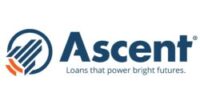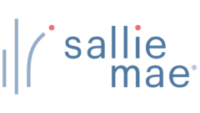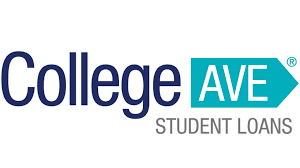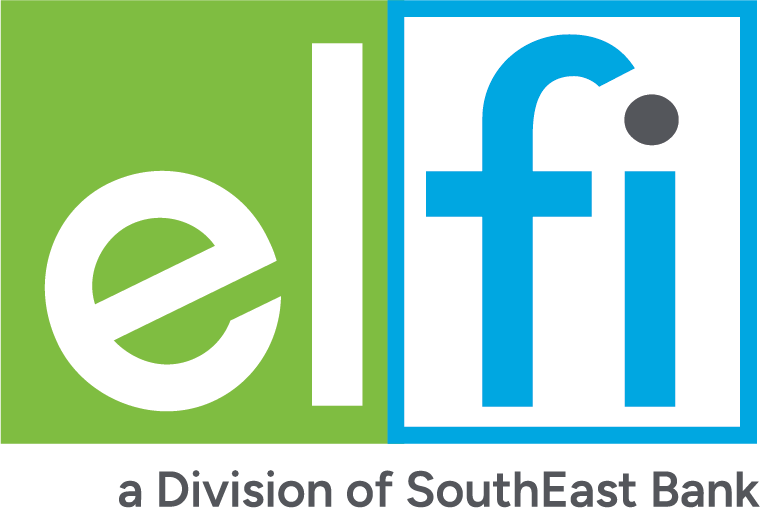Best Private Student Loans of January 2025


Rebecca Safier
Loans Expert
Rebecca is a freelance contributor to Newsweek’s personal finance team. A certified student loan counselor, she has written extensively on student loan debt and higher education. Rebecca has also covered a variety of other personal finance topics, including personal loans, the housing market and consumer credit. She’s committed to helping people understand their options and make informed decisions about their money.


Kristy Snyder
Banking Expert
Kristy is a freelance contributor to Newsweek’s personal finance team. As an editor, Kristy has worked with sites like Bankrate, JPMorgan Chase and NextAdvisor to craft and hone content on banking, credit cards and loans. She’s also written for publications such as Forbes Advisor and U.S. News and World. In her spare time, Kristy loves traveling, hitting up rail trails and reading.
Updated December 27, 2024 at 3:02 am
While federal student loans come with useful benefits for borrowers, they may not provide enough funding to cover your full cost of attendance.
A private student loan could fill the gap if you’ve maxed out your federal financial aid and need additional money to pay for school—whether that be tuition, fees, room and board or other college expenses.
You can find a private student loan for both private colleges and public universities, though the list of eligible schools may vary by lender. Read on for our top picks for the best private student loans.
Newsweek Vault’s loan experts evaluated multiple data points to help our readers make sense of their borrowing options across student loans and personal loans. To narrow down the best available offers, we weigh the product pros and cons across five core categories, including:
- Application process
- Eligibility requirements
- Interest rates
- Loan amounts (minimum and maximum)
- Repayment flexibility”
- Best for No Fees: SoFi
- Best for a Lengthy Grace Period: Earnest
- Best for No Co-Signer Loans: Ascent
- Best for Multi-Year Approval: Citizens
- Best for Income-Driven Repayment: RISLA
- Best for Career Training Costs: Sallie Mae
- Best for Part-Time Students: College Ave
- Best for Good Students: Funding U
- Best for Customer Service: ELFI
Compare Private Student Loans Now
9 Best Private Student Loans of 2024
Best for No Fees

SoFi Private Student Loan
Vault Verified
Why We Chose It
SoFi offers private student loans that can cover all school-certified costs with no fees. SoFi also offers some unique benefits to borrowers, including career coaching and financial planning services. Read our SoFi student loans review.
Pros
- No fees
- Option to check your rates through prequalification
- Co-signer release possible after 24 months of on-time payments
Cons
- Longest loan term is 15 years
- Not available to international students
- Doesn’t disclose minimum credit score requirement
Best for a Lengthy Grace Period

Earnest Private Student Loan
Vault Verified
Why We Chose It
While many private lenders offer a six-month grace period after you graduate, Earnest goes further with its nine-month grace period. It also offers a rate match guarantee, meaning it will match the rate you find on a competing loan offer, as well as gift you a $100 Amazon gift card. Read our Earnest student loans review.
Pros
- Nine-month grace period
- Rate match guarantee
- Transparent about credit and income requirements
Cons
- No option for co-signer release
- No repayment assistance after graduation
- Loans are not available in Nevada
Best for No Co-Signer Loans

Ascent Private Student Loan
on Credible’s website
Why We Chose It
If you’re a junior or senior in college without a co-signer, Ascent will consider other factors when evaluating your application, such as your school, program, major and GPA. Ascent also offers the possibility of co-signer release after just 12 months of on-time payments, as well as a cash back reward once you graduate and set up autopay. Read our Ascent student loans review.
Pros
- 1% cash back reward upon graduation
- Nine-month grace period
- Payments start lower and increase over time
Cons
- Non-cosigned loans only available to college juniors and seniors
- Aggregate borrowing limit of $200,000 for undergraduates
- High maximum interest rate
Best for Multi-Year Approval

Citizens Private Student Loan
on Credible’s website
Why We Chose It
Citizens streamlines the student loan application process with its multi-year approval process. After submitting your initial application, Citizens may let you request additional funds in subsequent years without having to provide more documentation or undergo another hard credit inquiry. Read our Citizens Bank student loans review.
Pros
- No origination, application or disbursement fees
- International students can apply with a creditworthy U.S. citizen co-signer
- Loyalty interest rate discount for current Citizens customers
Cons
- Maximum aggregate borrowing limit of $150,000 for undergraduate degrees and $225,000 for graduate degrees
- Not available for community colleges
- Lowest interest rate only with five-year repayment term
Best Income-Based Options

RISLA Private Student Loan
Vault Verified
Why We Chose It
The Rhode Island Student Loan Authority (RISLA) offers low-cost student loan refinancing nationwide. This nonprofit organization is dedicated to providing affordable educational funding for both students and parents, with zero upfront fees and low interest rates. RISLA stands out for its range of repayment options, including deferred payments, income-based payments and hardship forbearance.
Pros
- Available for both current students and graduates
- No upfront fees
- Prequalify with no hard credit check
Cons
- Maximum loan amount is $250,000
- Refinance loans do not have co-signer release
- Repayment terms limited to five, 10 or 15 years
Best Career Training Costs

Sallie Mae
Vault Verified
Why We Chose It
Sallie Mae offers private student loans for undergraduates, graduate students and career training programs. The option to tap into loans for career training costs is especially attractive.
Pros
- Student loans for career training
- 0.25% autopay rate discount
- Large loan amounts available
Cons
- Limited loan terms
- Doesn’t disclose a minimum credit score requirement
- Forbearance options vary
Best for Part-Time Students

College Ave Student Loans
Vault Verified
Why We Chose It
While many private lenders require students to attend at least half-time, some of College Ave’s loans are available to students attending less than half-time. The lender also has competitive rates and offers flexible repayment terms.
Pros
- Flexible repayment terms
- Students can attend less than half-time
- Soft credit check available to determine interest rates
Cons
- Co-signer release delayed until half of the repayment term has passed
- Fees for late payments
- Doesn’t disclose a minimum credit score requirement
Best for Good Students

Funding U
Vault Verified
Why We Chose It
Funding U doesn’t require students to have a co-signer. The lender also looks at details like your academic background, current coursework and potential earnings after graduation. If you have a qualifying GPA, among other markers, you could find the funding you need with Funding U. Notably, students with a strong academic track record can tap into the lowest rates.
Pros
- No co-signer required
- Uses a soft credit check to determine interest rates
- No late fees
Cons
- Limited loan term options
- Not available in every state
- Lower loan limits
Best for Customer Service

ELFI
Vault Verified
Why We Chose It
ELFI takes a modern approach to college financing with a simple online application, no application or origination fees and flexible repayment options. Most notably, ELFI borrowers are guided through the application process with a dedicated Student Loan Advisor. For added peace of mind, you’ll find excellent reviews on Trustpilot.
Pros
- Dedicated Student Loan Advisor through application process
- Features comparatively lower interest rates
- Prequalification available
Cons
- No option for co-signer release
- Borrow or cosigner requirements include a minimum 680 credit score and minimum credit history of 36 months
Private Student Loan Overview
What Is a Private Student Loan?
A private student loan helps you pay for college or graduate school. Unlike federal student loans, which are offered by the U.S. Department of Education, private loans for college come from banks, credit unions, online lenders or schools.
You can use a private student loan to cover your cost of attendance, which may include tuition, fees, room and board, books, supplies and living expenses.
How Do Private Student Loans Work?
When you get approved for a private student loan, the lender will typically send the funds directly to your school’s financial aid office. After applying the loan to mandatory tuition and fees, your financial aid office will send any remaining funds to you, which you can then use on supplies and living expenses.
Student loans from private lenders may come with a fixed interest rate, which stays constant over the life of your loan, or a variable rate, which fluctuates with market conditions. Along with choosing the type of rate, you can also usually select your repayment terms, often anywhere from five to 15 years.
Most private lenders let you defer payments while you’re in school and for six to nine months after you graduate. Once your grace period ends, you’ll make payments on a monthly basis until you’ve paid off the loan and interest charges in full.
How Do I Qualify for Private Student Loans?
Specific private student loan requirements vary by lender, but most want to see that you have strong credit. This may equate to a FICO Score of 670 or higher, though some lenders will accept lower credit scores.
If you can’t meet a lender’s credit requirements, you may have to apply with a co-signer. Your co-signer will become equally responsible for the debt, but some lenders offer co-signer release after a certain number of on-time payments.
Besides reviewing your credit, lenders may also look for a certain amount of monthly or annual income and an acceptable debt-to-income ratio. Plus, they may want to see that you’re attending an eligible school at least half-time.
Why Would You Get a Private Student Loan?
Taking out a private student loan can help fill in funding gaps after you reach the borrowing limits for federal student loans and other types of financial aid. In this scenario, private student loans can help you cover your remaining costs.
Keep in mind, however, that private student loans aren’t eligible for the same benefits as federal loans. For example, they’re not eligible for federal income-driven repayment plans, deferment options or loan forgiveness programs.
How Do I Apply for a Private Student Loan?
If you’re in need of a private student loan to pay for school, start by comparing offers from multiple lenders. Each lender is different, so comparing loan offers can help you find the best interest rate. Some lenders let you prequalify for a private student loan online, meaning you can easily check your rates without harming your credit score.
Don’t forget to consider the loan’s specifics. You may get to choose between a fixed and variable interest rate as well as repayment terms. Use a student loan calculator to estimate your monthly payments and long-term interest costs on various terms.
Your next step is gathering the information and documentation you’ll need to apply for your loan. On the application, a lender may want to see where you’re attending school, valid identification and proof of income, such as pay stubs or bank statements. Finally, the lender may run a hard credit inquiry to check your (and your co-signer’s, if applicable) credit.
Private Student Loans vs. Federal Student Loans
While you can use both federal and private student loans to pay for school, they have some key differences. Provided by the Department of Education, federal student loans come with fixed interest rates that are the same for all borrowers. Federal Direct subsidized and unsubsidized loans don’t require a credit check, so you can borrow them on your own without enlisting a co-signer. They’re also eligible for a variety of federal repayment plans and programs, such as income-driven repayment, deferment, forbearance and public service loan forgiveness.
Private loans for college, on the other hand, can have a range of interest rates, with the lowest rates generally going to borrowers with the strongest credit. You might have to apply with a co-signer to qualify. Your repayment plans and forbearance options will vary by lender, but private loans don’t typically have the same flexibility as federal loans if you need to adjust or postpone your payments.
That said, some private lenders let you borrow up to your school’s cost of attendance, minus any other financial aid you’ve already received. Federal Direct subsidized and unsubsidized loans, on the other hand, come with annual and aggregate borrowing limits, so they may or may not offer enough funding to cover your full cost of attendance.
Read more: Student Loan Repayment Options: Which One Is Best?
How To Compare Private Student Loans
Before choosing a lender, take some time to compare private student loans to find the best offer for you. Here are some factors to consider as you review loan offers.
Interest Rate and Fees
Look for a low interest rate and few (or no) fees to reduce your cost of borrowing as much as possible. Some fees to watch out for include an origination fee, application fee and administrative fee. Find out if the lender offers any interest rate discounts, too, such as a rate reduction for setting up autopay.
Repayment Terms
Find out how long you have to pay back your loan, as your repayment term directly impacts your monthly payments and long-term interest charges. A shorter term will save you money on interest and help you get out of debt faster, but you’ll have to make higher monthly payments.
A longer term will give you more affordable monthly payments, but you’ll end up paying more in interest over the years. It’s also worth checking if the lender offers any protections that could be useful in the future, such as forbearance if you lose your job or go back to school.
Co-Signer Requirements
Review a lender’s credit requirements and whether you might need to apply with a co-signer. If you do, find out whether the lender offers co-signer release after a certain period of on-time payments.
Frequently Asked Questions
Is It a Good Idea To Get a Private Student Loan?
It may be a good idea to get a private student loan if you’ve maxed out your federal financial aid and need additional funding for school. Be careful, however, not to take on more debt than you can afford to pay back. A general guideline is to avoid borrowing more than the amount you expect to make your first year out of college.
How Much Does It Cost To Get a Private Student Loan?
The best private lenders don’t charge any fees to get a private student loan. However, some lenders do charge origination, application or administrative fees that are calculated as a percentage of your loan amount. Although you can find fee-free student loans, you’ll always have to pay interest charges. Private student loans typically start accruing interest from the date of disbursement.
Who Is Eligible for Private Student Loans?
The eligibility requirements for a private student loan vary by lender, but most require that you’re at least the age of majority in your state and are attending an eligible school. You’ll also have to meet a lender’s requirements for credit, income and debt-to-income ratio (or apply with a co-signer who does).
When Do Student Loans Resume?
Federal student loan payments resumed in October 2023 for most borrowers. If you haven’t resumed making student loan payments yet, reach out to your student loan servicer for more information.
Is It a Good Idea to Consolidate Student Loans?
Consolidating your student loans into a single monthly payment can make it easier to manage your finances. But consolidating federal student loans through a private student loan means you’ll lose some of the borrower protections provided by the federal government.
Student Loan Rate and Terms Disclosure From Credible: Rates displayed include Automatic Payment and Loyalty Discounts, where applicable. Note that such discounts do not apply while loans are in deferment. The lenders on the Credible.com platform offer fixed rates ranging from 3.39% - 17.99% APR and Variable interest rates from 4.38% - 17.99% APR. Variable rates will fluctuate over the term of the borrower's loan with changes in the Index rate. The Index will be either LIBOR or SOFR. Rates are subject to change at any time without notice. Your actual rate may be different from the rates advertised and/or shown above and will be based on factors such as the term of your loan, your financial history (including your cosigner’s (if any) financial history) and the degree you are in the process of achieving or have achieved. While not always the case, lower rates typically require creditworthy applicants with creditworthy co-signers, graduate degrees, and shorter repayment terms (terms vary by lender and can range from 5-20 years) and include Automatic Payment and Loyalty discounts, where applicable. Loyalty and Automatic Payment discount requirements as well as Lender terms and conditions will vary by lender and therefore, reading each lender’s disclosures is important. Additionally, lenders may have loan minimum and maximum requirements, degree requirements, educational institution requirements, citizenship and residency requirements as well as other lender-specific requirements. Lenders will conduct a hard credit pull when you submit your application. Hard credit pulls will have an impact on your credit score.
Editorial Disclosure: We may receive a commission from affiliate partner links included on our site. However, this does not impact our staffs’ opinions or assessments.

Rebecca Safier
Loans Expert
Rebecca is a freelance contributor to Newsweek’s personal finance team. A certified student loan counselor, she has written extensively on student loan debt and higher education. Rebecca has also covered a variety of other personal finance topics, including personal loans, the housing market and consumer credit. She’s committed to helping people understand their options and make informed decisions about their money.